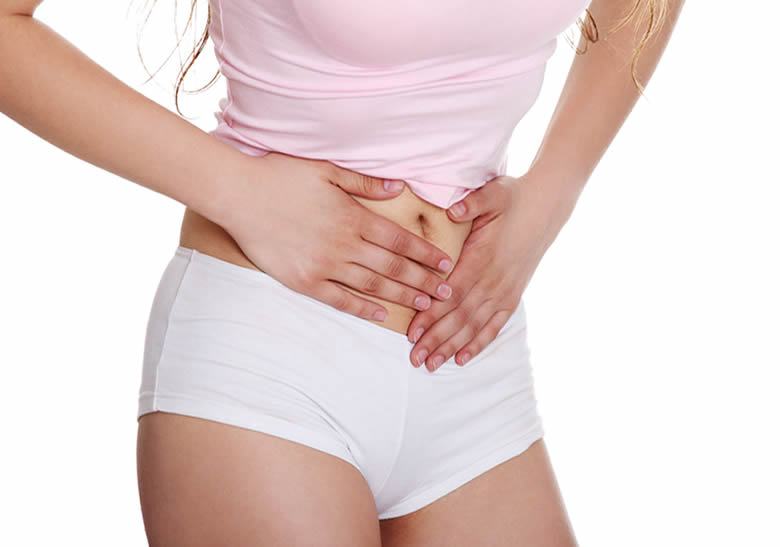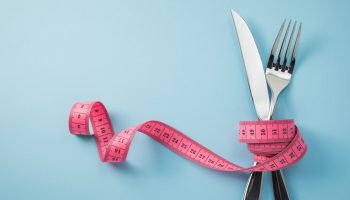
Approximately 4% of people abuse laxatives at some point, and as many as 7% of high school students abuse laxatives for weight loss.
Laxative abuse occurs when a person attempts to get rid of unwanted calories, lose weight, “feel thin,” or “feel empty” through the repeated, frequent use of laxatives. Often, laxatives are misused following eating binges, when the individual mistakenly believes that the laxatives will work to rush food and calories through the gut and bowels before they can be absorbed. But that doesn’t really happen. Unfortunately, laxative abuse is serious and dangerous – often resulting in a variety of health complications and sometimes causing life-threatening conditions.
| Abusing laxatives in an attempt to control body weight is generally a sign of a serious eating disorder. |
Laxatives come in 4 types that Vary in Intensity:
- Laxative Type #1: The least powerful laxative is a fiber-based laxative that bulks up the stool and helps it pass naturally through the digestive system.
- Laxative Type #2: The next laxative type that is a little stronger are the osmotic laxatives that work by drawing water into the intestine and helps the stool move through quicker.
- Laxative Type #3: A stronger laxative type is the stool softeners that make the stool soft and is used for people who are constipated and having difficult bowel movements.
- Laxative Type #4: The strongest laxative type is the stimulant laxatives that actually irritate the intestinal walls forcing the body to expel whatever is in the digestive tract.
A Laxative Myth
The belief that laxatives are effective for weight control is a myth. Take note that, by the time laxatives act on the large intestine, most foods and calories have already been absorbed by the small intestine. Although laxatives artificially stimulate the large intestine to empty, the “weight loss” caused by a laxative-induced bowel movement contains little actual food, fat, or calories.
Laxative abuse, on the other hand, causes the loss of water, minerals, electrolytes and indigestible fiber and wastes from the colon. This “water weight” returns as soon as the individual drinks any fluids and the body re-hydrates. If the chronic laxative abuser refuses to re-hydrate, she or he risks dehydration, which further taxes the organs and which may ultimately cause death.
Health Consequences of Laxative Abuse

- Disturbance of electrolyte and mineral balances. Sodium, potassium, magnesium, and phosphorus are electrolytes and minerals that are present in very specific amounts necessary for proper functioning of the nerves and muscles, including those of the colon and heart. Upsetting this delicate balance can cause improper functioning of these vital organs.
- Severe dehydration, that may cause tremors, weakness, blurry vision, fainting, kidney damage, and, in extreme cases, death. Dehydration often requires medical treatment.
- Internal organ damage: Laxative dependency occurs when the colon stops reacting to usual doses of laxatives so that larger and larger amounts of laxatives may be needed to produce bowel movements. Internal organ damage may result, including stretched or “lazy” colon, colon infection, Irritable Bowel Syndrome, and, rarely, liver damage.
- Chronic laxative Dependence may contribute to risk of colon cancer.
Overcoming the Laxative Abuse Cycle
Overcoming laxative abuse requires working with a team of health professionals who have expertise in treating eating disorders, including a general physician, a psychiatrist, psychologist, or counselor, and a registered dietician.
Temporary symptoms with discontinuation of the laxatives include:
|
Support from close friends and family is also helpful. Meeting with others to talk over anxieties, concerns and difficulties can greatly aid in getting through tough times in the recovery process.
In case you are constipated, bulk laxatives, such as psyllium (Metamucil) and methylcellulose (Citrucel), are safe treatment options. They make the stool more bulky by absorbing water. For example, psyllium (Metamucil) is safe because it is a natural form of fiber. The best treatment for constipation is food high in fiber or laxatives that create a more bulky and softer stool.
Laxative abuse creates a false sense of weight loss. Laxatives do not prevent weight gain and absorption of calories. They only remove water and electrolytes.
Ref:
Related Links
Disclaimer
The Content is not intended to be a substitute for professional medical advice, diagnosis, or treatment. Always seek the advice of your physician or other qualified health provider with any questions you may have regarding a medical condition.



